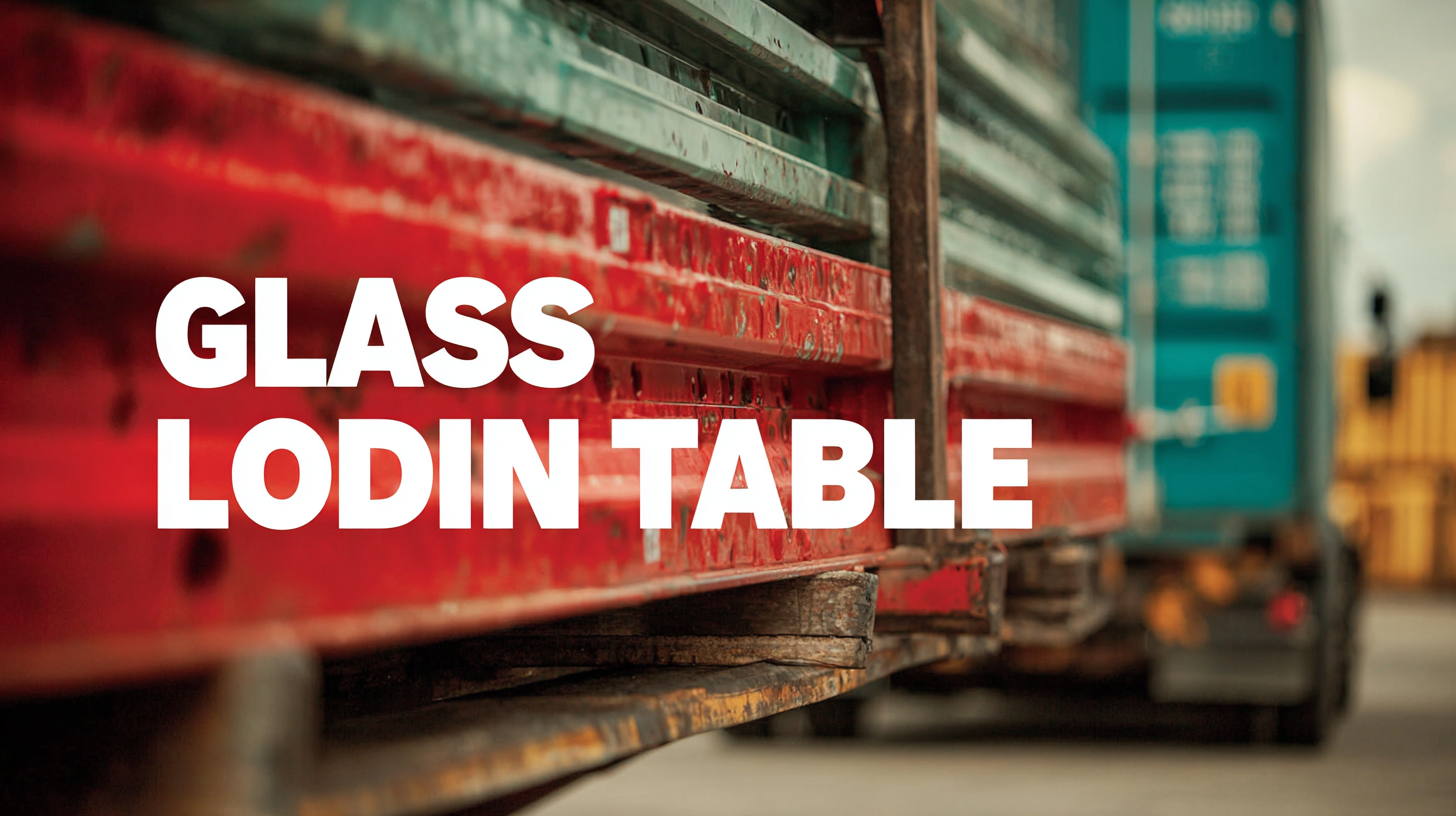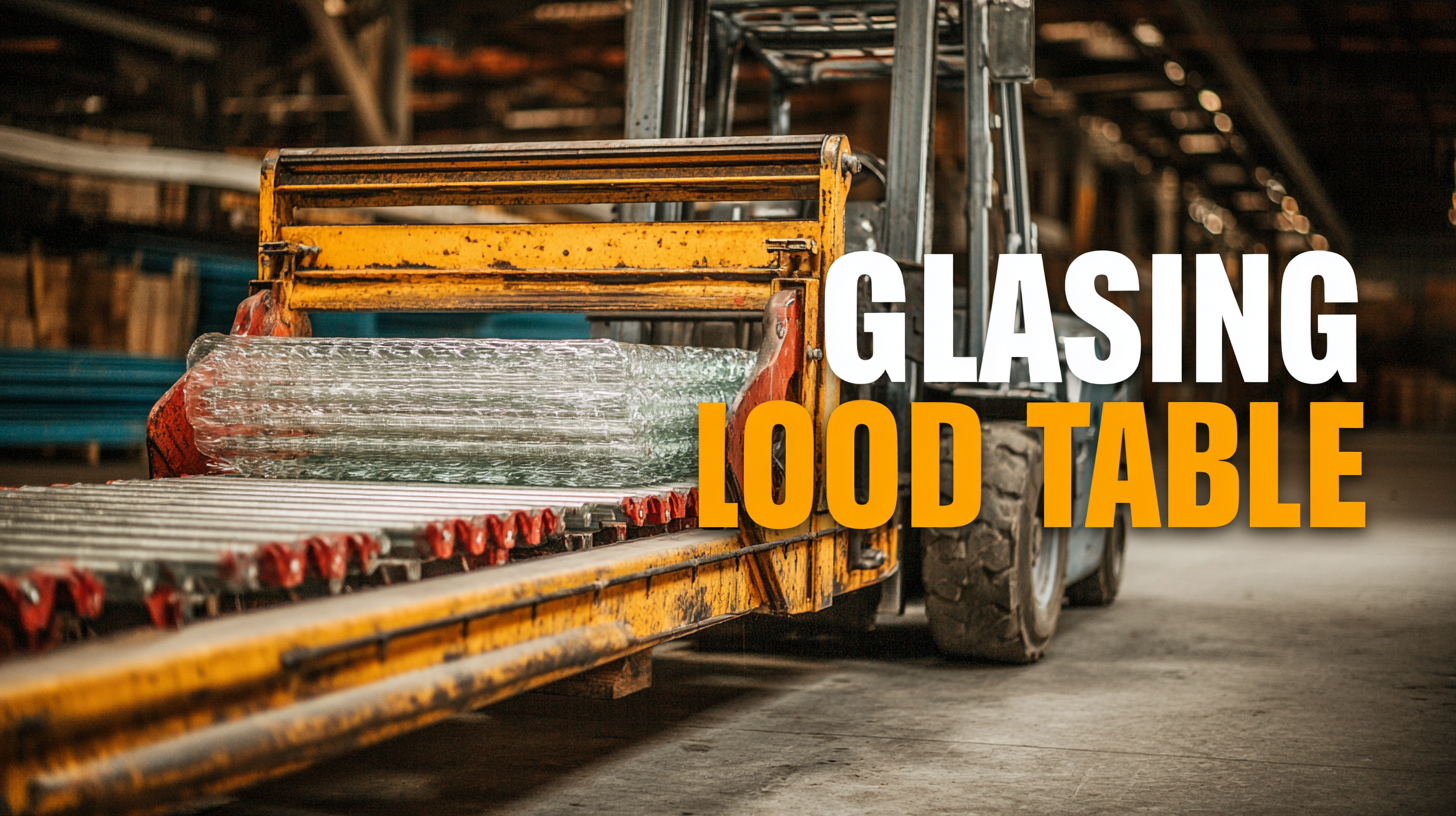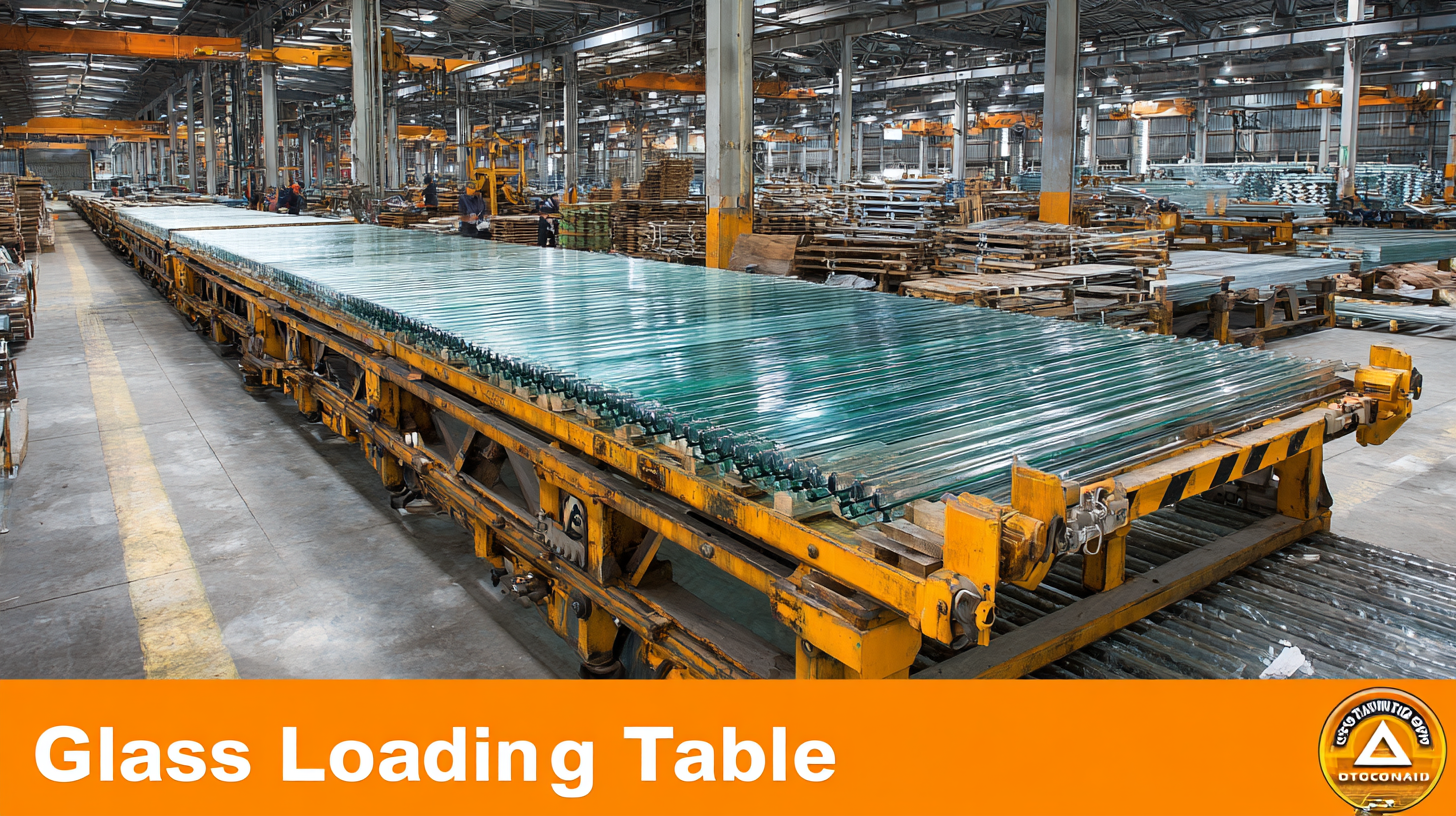Understanding Import and Export Certifications for the Best Glass Loading Table Industry
In the competitive landscape of the glass loading table industry, understanding import and export certifications is crucial for ensuring compliance and facilitating international trade. According to a recent report by Grand View Research, the global glass loading table market is projected to grow at a CAGR of 5.8% from 2021 to 2028, underscoring the increasing demand for efficient glass handling solutions. As businesses expand their operations across borders, navigating the intricacies of certification processes becomes essential. Proper certifications not only mitigate legal risks but also enhance product credibility in the eyes of consumers and partners.
By delving into the specific import and export requirements related to glass loading tables, industry stakeholders can streamline their trade processes and capitalize on growth opportunities in diverse markets.
The Importance of Import and Export Certifications in the Glass Loading Table Market
In the glass loading table market, import and export certifications play a crucial role in ensuring product quality and safety standards. With the recent imposition of anti-dumping duties on imports of clear float glass in India, the landscape for international trade in this sector is shifting. Such regulatory measures highlight the need for manufacturers to navigate complex certification processes that not only comply with domestic laws but also align with international standards. According to industry reports, adherence to these certifications can lead to increased market access and consumer trust, which is vital in a competitive market that is increasingly scrutinized for quality and environmental sustainability.
Furthermore, the importance of these certifications extends beyond compliance; they are essential for maintaining the integrity of supply chains. The rigorous standards imposed on imports—such as those recently flagged by Canadian officials concerning food items from China—underscore the global scrutiny of imported products. For companies in the glass loading table industry, ensuring that all import and export certifications are up to date can prevent costly disruptions and enhance operational efficiency. Reports indicate that businesses that proactively manage their compliance are better positioned to capitalize on market opportunities and mitigate risks associated with international trade.

Key Certifications Required for Glass Loading Tables and Their Impact on International Trade
When engaging in the international trade of glass loading tables, understanding the key certifications can significantly impact business success. Certifications such as ISO 9001 for Quality Management Systems and CE marking for compliance with European health and safety standards are crucial. According to a recent market research report by MarketsandMarkets, the global glass furniture market is projected to reach $70 billion by 2025, highlighting the importance of adhering to recognized standards to gain a competitive edge.
One critical aspect to consider is the Environmental Product Declaration (EPD), which provides transparency regarding the environmental impact of products. Aimed at eco-conscious consumers and businesses, having an EPD can enhance the appeal of glass loading tables in markets prioritizing sustainability. Furthermore, achieving an EPD may facilitate smoother entry into regions with stringent environmental regulations.
**Tip:** Ensure your products meet the necessary certifications before entering international markets. This process may require collaborating with accredited organizations, which can help streamline compliance while ensuring your glass loading tables are market-ready. Another important tip is to stay updated with changes in regulations, as standards can evolve, potentially affecting market access and competitiveness.
Import and Export Certifications for Glass Loading Tables
Recent Trends in Glass Loading Table Exports and Certification Challenges
The landscape of glass loading table exports is evolving rapidly, influenced by various market dynamics and certification challenges. As industries worldwide adapt to regulatory changes and environmental standards, the importance of understanding export certifications cannot be overstated. Recent trends indicate that manufacturers must navigate complex certification processes to ensure their products meet international quality and safety standards. This is particularly crucial for the glass loading table industry, where compliance can significantly impact market access and competitiveness.

In light of these challenges, the increasing focus on mechanical performance and material innovation in glass manufacturing is noteworthy. As research continues to advance, it introduces new perspectives that can enhance the durability and efficiency of glass loading tables. However, with these advancements comes the necessity for updated certifications to validate the latest technologies. Manufacturers need to stay informed about the evolving certification requirements, especially as global markets face fluctuating demands and potential disruptions, such as those seen in the liquefied natural gas sector. As exporters strive to adapt, the intersection of innovation and regulation remains a critical area of focus.
Understanding Compliance Costs Associated with Import and Export Certifications
Understanding compliance costs associated with import and export certifications is crucial for businesses in the glass loading table industry. Compliance requirements can often lead to substantial costs, especially when navigating various regulatory frameworks. For instance, recent increases in
Kenya's phytosanitary inspection fees highlight how unexpected compliance changes can directly impact exporters. The cost of obtaining necessary certifications is not limited to fees alone; it also encompasses the resources allocated to understanding and adhering to complex regulations, which can be time-consuming and financially burdensome.
Furthermore, compliance is not just about managing expenses, but also about embracing opportunities. As seen in the evolving
food safety regulations in Vietnam, manufacturers must stay vigilant about changes that could affect their operational costs. Additionally, adhering to trade agreements such as
CUSMA can lead to significant tariff savings for Canadian exporters, emphasizing the importance of being well-informed about compliance measures.
In a highly regulated international market, addressing these compliance issues thoughtfully can ultimately position companies for competitive advantage, ensuring that they not only meet legal standards but also enhance their market potential.
The Role of Quality Standards in Enhancing the Global Competitiveness of Glass Loading Tables
In the glass loading table industry, quality standards play a pivotal role in enhancing global competitiveness. Adhering to rigorous certification processes not only ensures compliance with national and international regulations but also fosters trust among customers and partners. By demonstrating a commitment to quality, manufacturers can distinguish their products in a crowded marketplace, attracting discerning clients who prioritize reliability and performance.
Furthermore, the impact of these quality standards extends beyond mere compliance. They drive innovation and encourage continuous improvement within companies, enabling them to stay ahead of industry trends. With a focus on quality, manufacturers can streamline their processes, reduce waste, and improve overall efficiency. This not only benefits their bottom line but also enhances their reputation, leading to increased customer loyalty and market share in the highly competitive glass loading table sector.

Home
About Us
Products
UPVC PVC Window Machine
Aluminum Window Machine
Glass Cutting Machine
Glass Edging Machine
Insulating Glass Machine
Glass lifting machine
Glass Washing Machine
Glass Laminating Machine
Glass Sandblasting Machine
Glass Drilling Machine
CNC Glass Working Center
CNC Non-Metal Cutting Machine
The Other Glass Machinery
Application
Download
News
Contact Us


